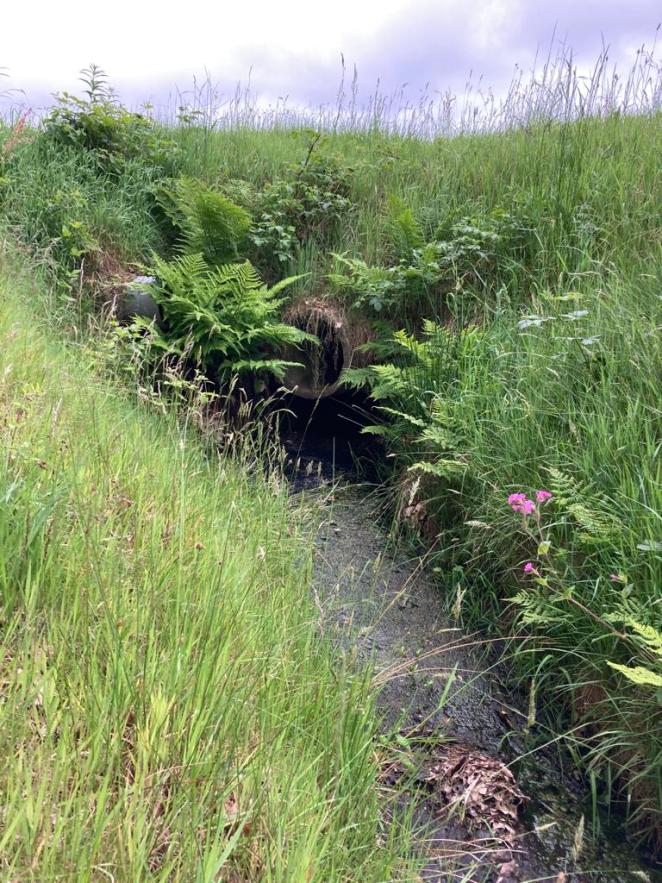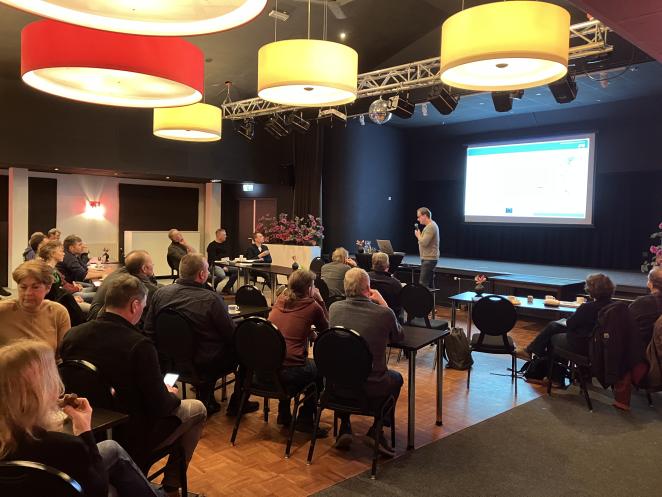To further investigate future climate adaptive measures in the Northern Netherlands, three organizations are committed to overseeing and navigating four pilot projects. One of them being NL4. The province of Drenthe, together with water boards Hunze en Aa’s and Noorderzijlvest, hope to ensure the quality and quantity of water while revitalizing natural habitats and reducing CO2 emissions. This not only entails close partnerships to all local and regional stakeholders, in particular the farming community, but also a true systematic change. NL4 is an intrensic part of this integration of water and soil management, while balancing activities in urban, agricultural and natural areas.

Dutch farming practice formerly focused on drainage. Now, adapting to the impacts of climate change means making changes on many fronts
Data collection
With the NL4 pilot well underway, data collection has been taking place in a number of locations. In the area of Zeijen, sensors have been measuring soil moisture and groundwater levels in various places for several years now. Data is also being collected by the Waterboard Noorderzijlvest to gain insight into surface water levels, water quality (including nitrogen and phosphorus concentrations and the amount of precipitation. A so-called field gateway has now also been installed in the area to collect all measured data in the cloud.
This data is being used for the Blue Transition NL4 pilot to observe the potential effects of farmers retaining surface water and groundwater upstream. Where necessary, additional monitoring stations will be installed at other locations.

Niels Tienstra from Waterboard Noorderzijlvest explaining the purpose of Blue Transition to key stakeholders in pilot areas which is vital for a good collaboration.
Living labs
Niels Tienstra, the project coordinator at Waterboard Noorderzijlvest, explains: “Pilot NL4 has two living labs, Zeijen and Veenhuizen, where we communicate directly with the farmers involved. We have had a number of meetings already to discuss climate change and its possible consequences for water management and farming in the area, and what we can do about this.”
The province of Drenthe, which is also involved in this pilot, and Noorderzijlvest not only determine the content, but also undertake the consultations with the farmers. The cooperation with these farmers is key, since an important part of NL4 is implementing practical measures, besides carrying out a model study. . “Together, we determine the best locations to take these measures,” Niels continues.
“The main challenge for Noorderzijlvest is linking the pilot to ongoing area-based projects. A stricter national policy on water quality has created some unease in the agricultural sector. By explaining the purpose of Blue Transition to this key stakeholder in our pilots, we can continue this collaboration and the original plans still remain intact despite the challenges.”
Challenge, challenge, colaboration
With a long history of land reclamation and farming practice formerly focused on drainage, it can be said that adapting to the impacts of climate change means making changes on many fronts. Long periods of drought are also a relatively new phenomenon in the Netherlands. On top of that, tackling the latest water management challenges together with farmers is likewise a new approach. All in all, the cooperation in Blue Transition is extra valuable because of the work the project does in facing similar challenges with both local and regional, as well as international stakeholders.
